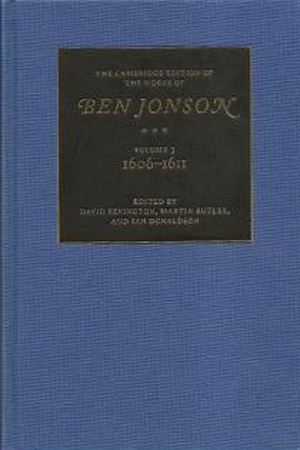On the Characterisation of Male Poets’ Mothers
Listen to this poem read by the author.
I
Charles Baudelaire’s mother—
orphaned at seven—living
on the charity of friends—
at twenty-six married
an ex-priest, widower—
After her husband died she married again
and was happy—
It is said— ‘This second marriage
was to have a disastrous effect on his life’—
‘No longer being the sole focus
of his mother’s attention gave him a trauma’—
‘When you have a son like me
you do not remarry’—
He asked her endlessly for money—
She repaid his publishers—
He wrote to her—
‘I am the only object which makes you live’—
‘After my death, you will no longer live, that’s clear’—
He wrote repeatedly of returning to Honfleurs—
He passed through there once by train
and did not stop—
II
Rainer Maria Rilke’s mother—
whose first child died at two weeks—
it is said— ‘acted as if she sought to recover the lost girl
through the boy
by dressing him in girl’s clothing’—
and hurt her husband’s ‘sensibilities’
by ‘parading the boy in female dress’—
Victoria and Albert Museum of Childhood—
‘In Western European countries until about 1920
boys would wear dresses until they were ‘breeched’—
‘breeching’ happened from the age of about four-
to eight-years-old’—
She gave him the doll, doll-bed and kitchen that he wanted—
He spent hours combing his doll’s hair—
He had a ‘saber hammered in gold’, a knight’s ‘tin decoration’—
He was, he wrote, ‘eating like a wolf, sleeping like a sack’—
When he turned six she breeched him and took him to school—
He suffered from headaches and fevers—
She sat by his bed, through all the hours, to soothe him—
In his second year of primary school, 200 hours—
In his third year of primary school, two whole quarters—
His father left—The grandparents were no help—
His father blamed his mother for his unhappiness at the military school
that his father had chosen—
He wrote to her almost every day—
He wanted letters, food packets, skates, visits—
She gave him these—
Whenever she left—they say—he felt abandoned—
‘If in my father’s house’
(his father had left)
‘love was shown me with both care and concern only by my father’
(he lived with his mother)
‘you know those persons who are to blame—
and that the woman whose first and most immediate care
I should have been
loved me only when bringing me out in a new little dress’—
‘Quiet endurance and courageous resignation’,
he said, were his thing—
and his suffering, ‘only the whim
of a pitiful, pleasure seeking creature (Mother)’ —
III
Arthur Rimbaud’s mother—
according to reports—
was ‘sour-faced’—
was ‘narrow-minded, stingy,
completely lacking in a sense of humour’—
was ‘renfermée, têtue et taciturne’—
He named her his ‘Mouth of Darkness’—
His father—
‘good-natured, easy-going, generous’—
came home on leave only to give her another child—
ten weeks with her—five children—
after which he did not come back again—
When the youngest was four he retired
easily to Dijon—
She named herself a widow—
She worried about the children’s education—
She had to call the police to bring him home—
In Paris, he put sulphuric acid into Charles Cros’s water—
He stabbed a knife into Verlaine’s wrist—
His ‘teen rebel phase’—they say—was ‘a reaction to life with Vitalie’—
He stayed with her all summer writing ‘A Season in Hell’—
She paid for it to be published—
When she asked him what it meant he answered
‘It means what it says’—
From Africa, he kept writing her letters—
he wanted books, goods—he had tasks for her—
He had ‘a romantic view of his father’—
‘My dear Mummy—
I got your letter and the two stockings alright—
Do not be upset about all this, however—
But it’s a poor reward for so much work—
so many privations and troubles—
P.S. As for the stockings, they are useless—I shall sell them somewhere’—
In 1890, a photo—she stands in her garden with flowers—
IV
Philip Larkin’s mother
sent him ‘seven enormous pairs of socks’
and lilies to brighten up his room—
‘Dear Creaturely Mop, this seems a good time to warn you
I am down to my last three pounds’—
She wrote to him—
‘Marriage would be no certain guarantee
as to socks being always mended,
or meals ready when they are wanted.
Neither would it be a good idea to marry
just for these comforts. There are other things
just as important’—
for which, she has been held responsible for his not marrying—
‘He couldn’t marry anyone
because he was involved with his mother’—
It is said— she was ‘nervous, constantly whining’—
‘she was the poet’s muse—and his millstone’—
She wrote— ‘When I came to the sketch of me, I laughed outright’—
His father attended Nazi rallies—
In his mother, though, he complained of
‘a kind of “defective mechanism”. Her ideal is
“to collapse” and to be taken care of’—
‘Dear Mop Creature—send some underclothes please’—








Comment (1)
Leave a comment
If you are an ABR subscriber, you will need to sign in to post a comment.
If you have forgotten your sign in details, or if you receive an error message when trying to submit your comment, please email your comment (and the name of the article to which it relates) to ABR Comments. We will review your comment and, subject to approval, we will post it under your name.
Please note that all comments must be approved by ABR and comply with our Terms & Conditions.